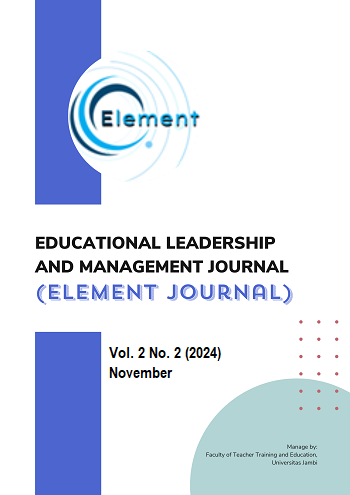Influence of The Use Of E-Learning And Interpersonal Communication Lecturer on Learning Motivation and Student Engagement in A Number of University in Sumatra
DOI:
https://doi.org/10.22437/element.v2i2.38381Abstract
This study aims to analyze the influence of e-learning usage, lecturer interpersonal communication, learning motivation, and student engagement in several universities in Sumatra. This study used a quantitative approach and the data collection technique involved the distribution and collection of questionnaires (broadcasting) through Google Form. The respondents selected for this study were students at several universities in Sumatra, from a total population of 1000 with a sample size of 200. The data analysis technique used in this research is Partial Least Squares-Structural Equation Modeling (PLS- SEM) to develop a model that describes the relationship between variables. The results of this study show that, in the first hypothesis, the use of e-learning has a P value of 0.000, which indicates a significant influence on student learning motivation. In the second hypothesis, the use of e-learning has a P value of 0.000, which also shows a significant influence on student engagement. The third hypothesis, interpersonal communication has a P value of 0.000, which indicates a significant influence on student learning motivation. The fourth hypothesis, interpersonal communication has a P value of 0.000, which shows a significant effect on student engagement. Finally, the fifth hypothesis, learning motivation, has a P value of 0.000, which shows a significant influence on student engagement. Therefore, this study concludes that, the use of e-learning and lecturers' interpersonal communication have a significant impact on learning motivation and student engagement in several universities in Sumatra. In addition, learning motivation also directly contributes to student engagement.










